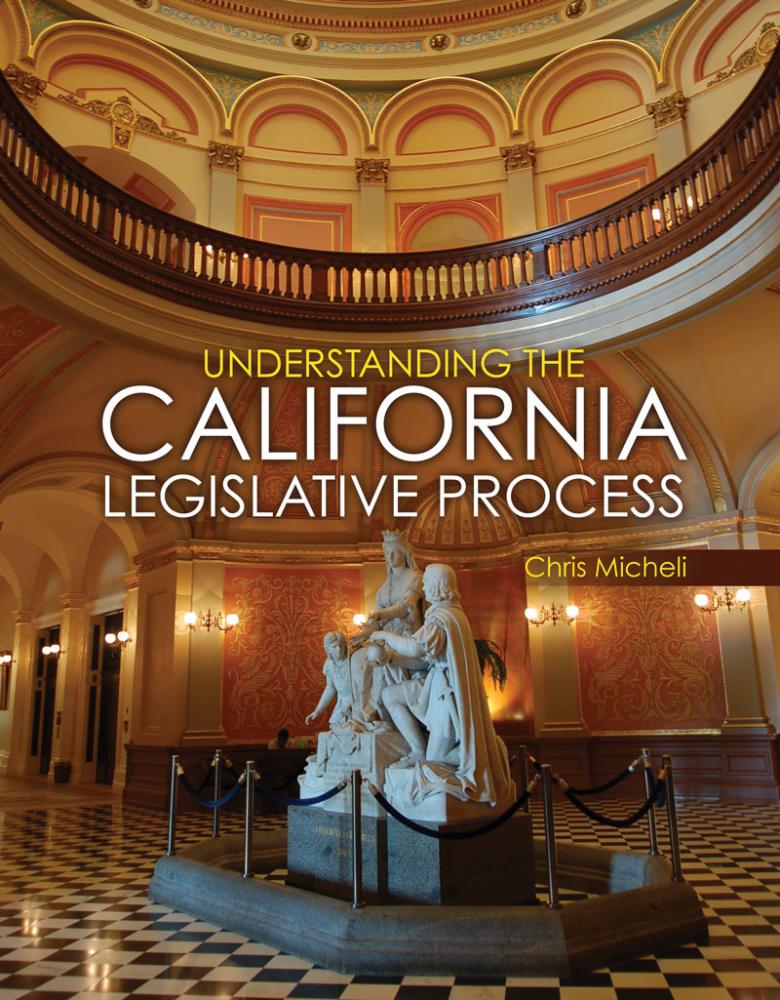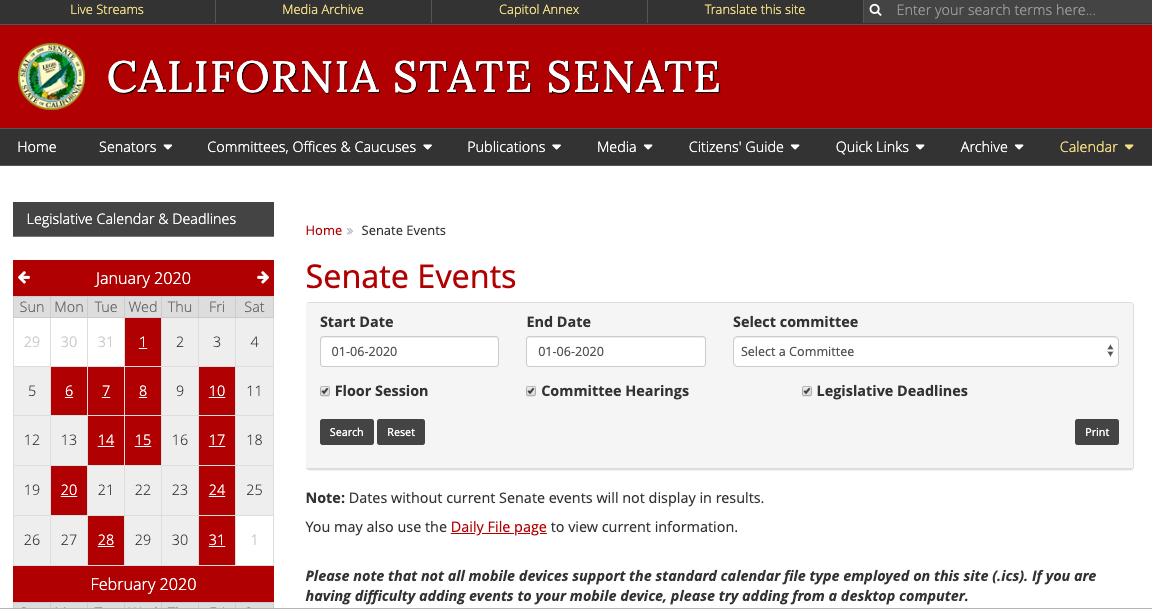
The Legislative Bill Room, California State Capitol. (Photo: ca.gov)
Are Legislative Findings and Declarations Necessary in Legislation?
The purpose is to explain the intent of the Legislature in enacting the particular statute
By Chris Micheli, October 11, 2020 8:15 am
On occasion, when we review California bills, we come across legislative findings and declarations in these measures. Why are they used and are they necessary? There are basically two schools of thought among bill drafters.
But first, what are they? Bills sometimes contain the equivalent of a “preamble,” or a declaration of purpose. This preamble to a bill usually consists of statements of legislative intent. In California, we call these “legislative findings and declarations.” The general purpose of this language is to explain the purpose or the intent of the Legislature in enacting the particular statute.
Are they necessary? That depends. There are those who believe these statements of purpose, or legislative findings and declarations, can assist the courts in interpreting any ambiguous terms found in the statute.
Our state’s statutes sometimes have ambiguities and courts must look to the legislative history to determine what those statutory words were intended to mean. While statute’s plain reading is generally to be followed, at times, that may not be so easy and courts will have to rely upon the limited evidence of legislative intent that is available for California legislation. One of those pieces of evidence could come from the bill itself – the legislative findings and declarations.
Based upon this point of view, use of legislative findings may provide a reviewing court with a “roadmap” that will assist the court in its analysis of the statutory language. This viewpoint also advocates for the judicial branch to provide deference to the legislative body’s determination regarding the need for the bill and, as a matter of separation of powers, a bill’s explicit rationale helps ensure that a court does not have to go on a “fishing expedition” among other forms of extrinsic aids to determine what the legislature intended.
What might this language look like? The following is an example from a California bill:
The Legislature finds and declares all of the following:
(a) According to a December 6, 2017, report by the Legislative Analyst’s Office entitled, “Improving In-Prison Rehabilitation Programs,” California state prisons house nearly 130,000 inmates.
(b) While incarcerated in prison, inmates often participate in various rehabilitation programs that seek to improve the likelihood that inmates will lead a productive, crime-free life upon release from prison by addressing the underlying factors that led to their criminal activity.
(c) The Department of Corrections and Rehabilitation offers inmates various rehabilitation programs while they are in prison, including education and substance use disorder treatment programs. The primary goal of those programs is to reduce recidivism—the number of inmates who reoffend after they are released from prison.
On the other hand, there are those who believe that a well-drafted bill should not require any extraneous statement within itself of what it seeks to accomplish or the reasons prompting its enactment. For example, according to the South Dakota Legislative Counsel, “A declaration of purpose is strongly discouraged and is rarely useful. A well drafted bill should not need a declaration of purpose. However, if a statement of policy or purpose is to be included, it is ordinarily the first section of the bill and should be short and concise. An improperly worded statement of purpose may cause serious problems of judicial interpretation.”
Based upon this viewpoint, language stating the purpose of a bill or recital of facts upon which a bill is predicated should not be included as a matter of course. However, in some circumstances, purpose language may be useful in upholding a bill against constitutional attack after enactment or to give meaning to a provision for liberal construction. In those circumstances, appropriate language may be included in a bill.
- Mergers of Unincorporated Associations - February 21, 2026
- A Historic Look at Bill Introductions in the California Legislature - February 21, 2026
- Construction of Eminent Domain Law - February 21, 2026




